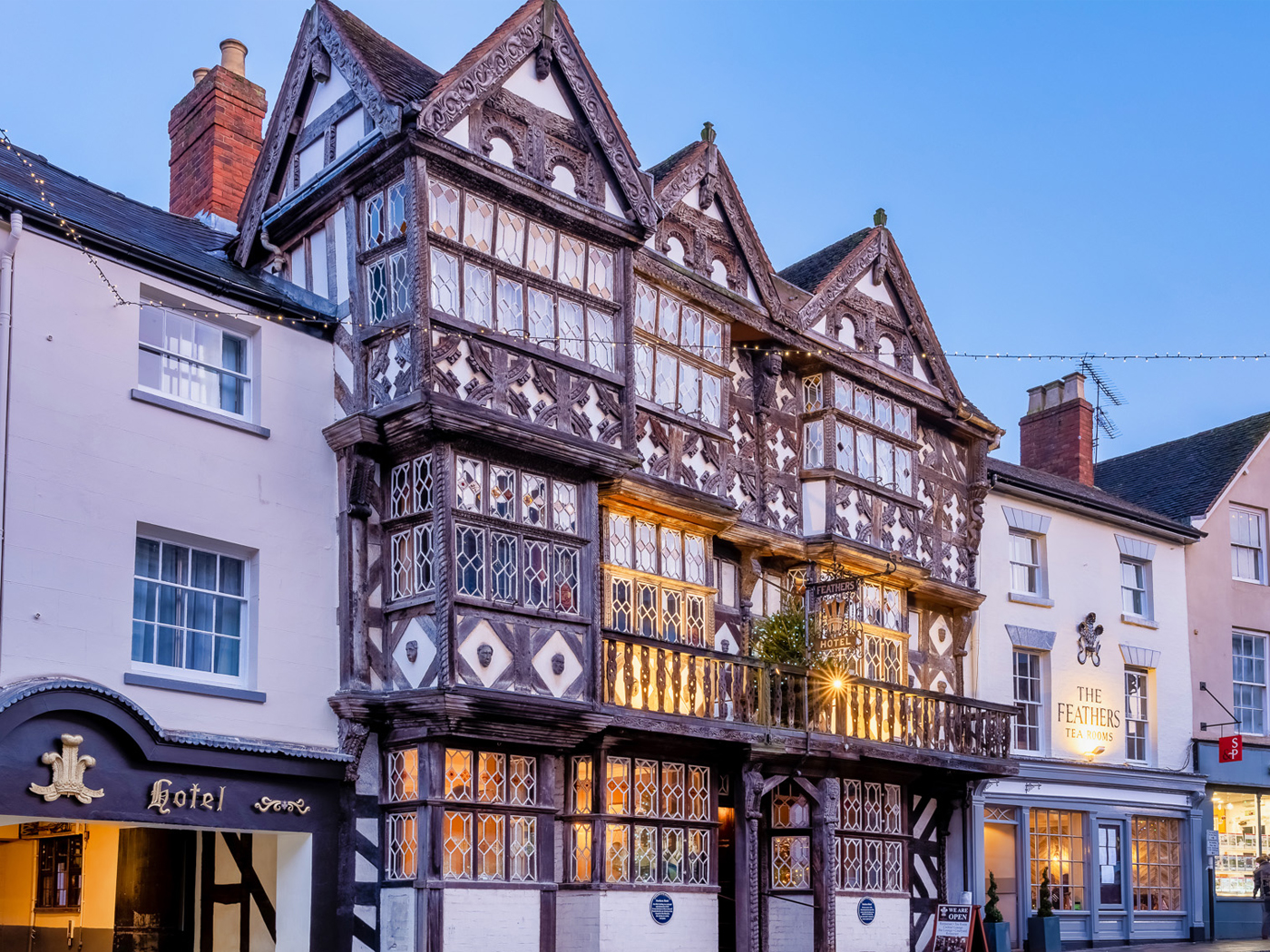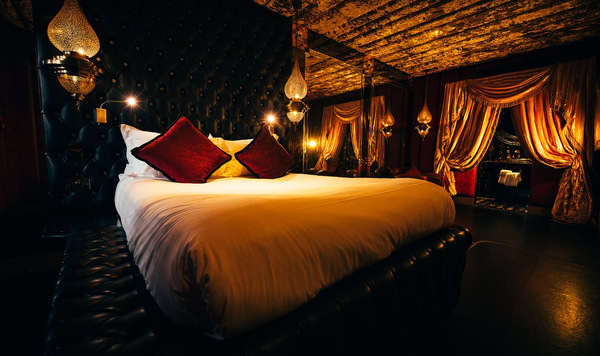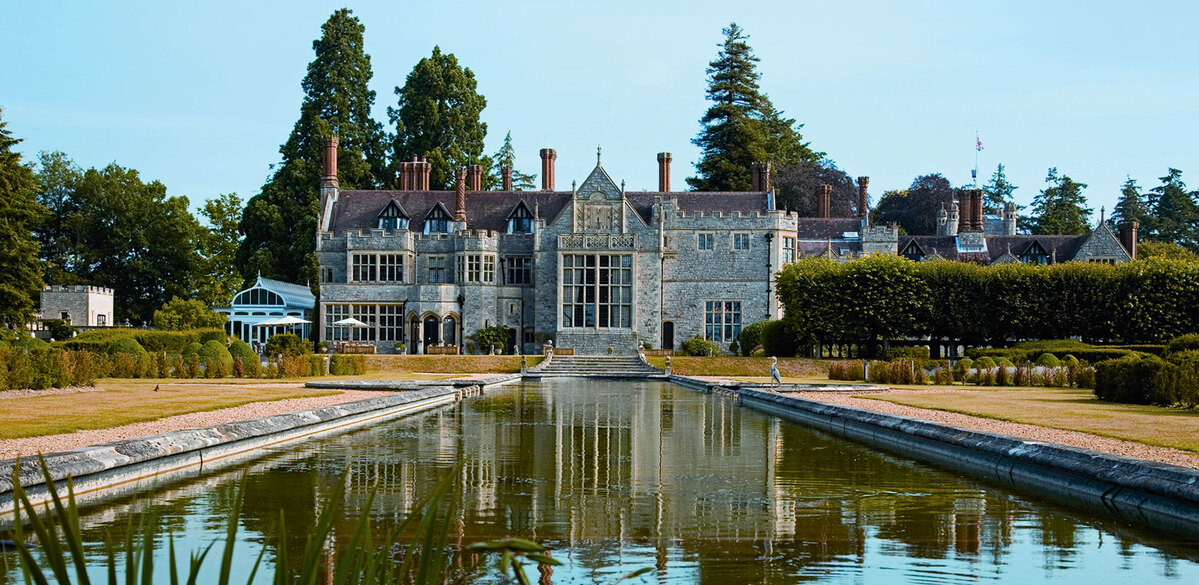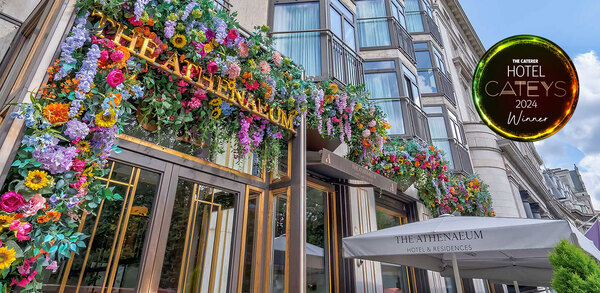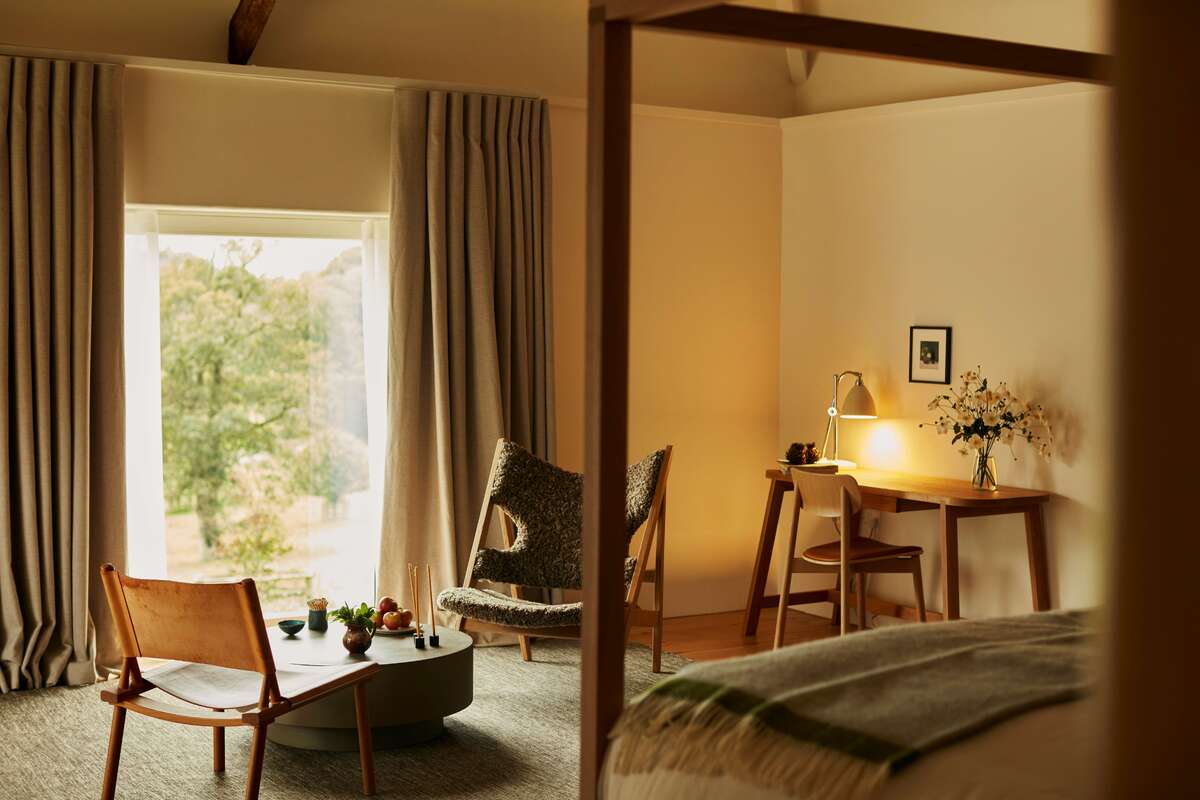A new chapter for the historic Feathers hotel in Ludlow
The Feathers hotel in Ludlow has a 400-year legacy, but the tragic recent death of a guest after contracting Legionnaires’ disease has made for an unforgettable chapter in its history. Fiona Sims finds out how new owner Crest Hotels is turning the page
There aren’t many hotels that can claim to have been hosting guests since 1619, but the Feathers hotel in Ludlow can do just that. It draws visitors from far and wide, some who come to ogle its ornate half-timbered Jacobean frontage, while others dine in its smart restaurant, nibble cakes in its tearoom, or stay in one of the ancient bedrooms.
But tragically, in 2017, the hotel’s reputation suffered an unfortunate turn when its aged plumbing resulted in the death of a guest after they contracted Legionnaires’ disease.
The 42-bedroom hotel closed for a deep clean, reopening again two months later only to find that, after further testing, traces of the bacteria were still present. Customers lost confidence, the hotel went into administration, and then onto the market for £2.65m.
Cue the arrival of new owner Crest Hotels, who jumped at the chance – and the challenge – to bring this historic hotel back to life, restoring confidence and bestowing a sumptuous new look, with plans to throw open its doors in April. Then the pandemic hit.
“It’s been very emotional,” says Crest Hotels group operations director Jason Hiley. “We put so much effort into the phased opening, starting with the tearoom last May, the restaurant and lounge last October and the first 20 bedrooms in December, with the remaining bedrooms opening in early April this year. Having to close the doors again on 25 March was very hard for us all.”

Like most in the hospitality industry, the hotel took a big hit financially, refunding more than £100,000 in cancellations for March alone and a further £150,000 for future summer bookings. But the government’s Coronavirus Job Retention Scheme provided a lifeline, with 25 staff put on furlough, while others, like Hiley, who is still working, took a 50% pay cut.
The hotel group found another safety net in a contract with Shropshire Council to provide accommodation for vulnerable people at the Feathers, and another with Bristol City Council for its 73-bedroom Arnos Manor property, which Hiley reported worked well while they waited for the government to lift restrictions.
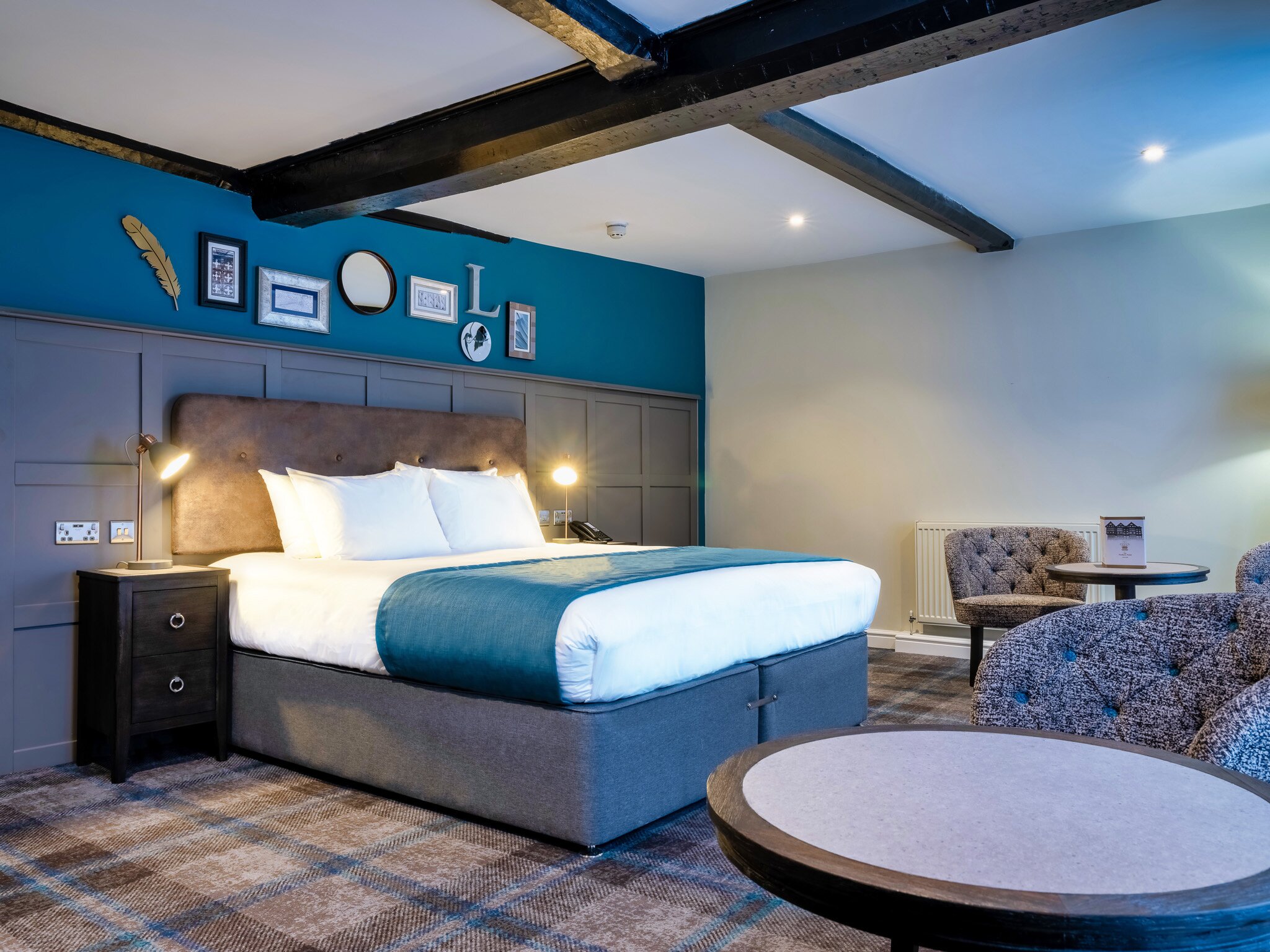
“The contracts don’t make any profit but they do at least cover the majority of our losses. They have been amazing guests, actually. The other day I saw one of the guests sweeping the car park because he wanted to give something back,” he says. The other two hotels in the group, the 50-bedroom Almondsbury Interchange hotel on the outskirts of Bristol and the 86-bedroom Holiday Inn Express in Knowsley, Liverpool, reopened for key workers in June and are now both open to guests.
The other day I saw one of the guests sweeping the car park because he wanted to give something back
A site for sore eyes
There was no masterplan to buy listed, historical properties. “Arnos Manor was a no-brainer with great uplift potential, and the Feathers was a wild card, which the owners and I fell in love with. But if this kind of property works well for us, who says we won’t do it again? Every acquisition is based on the merit of the potential of its location,” says Hiley.
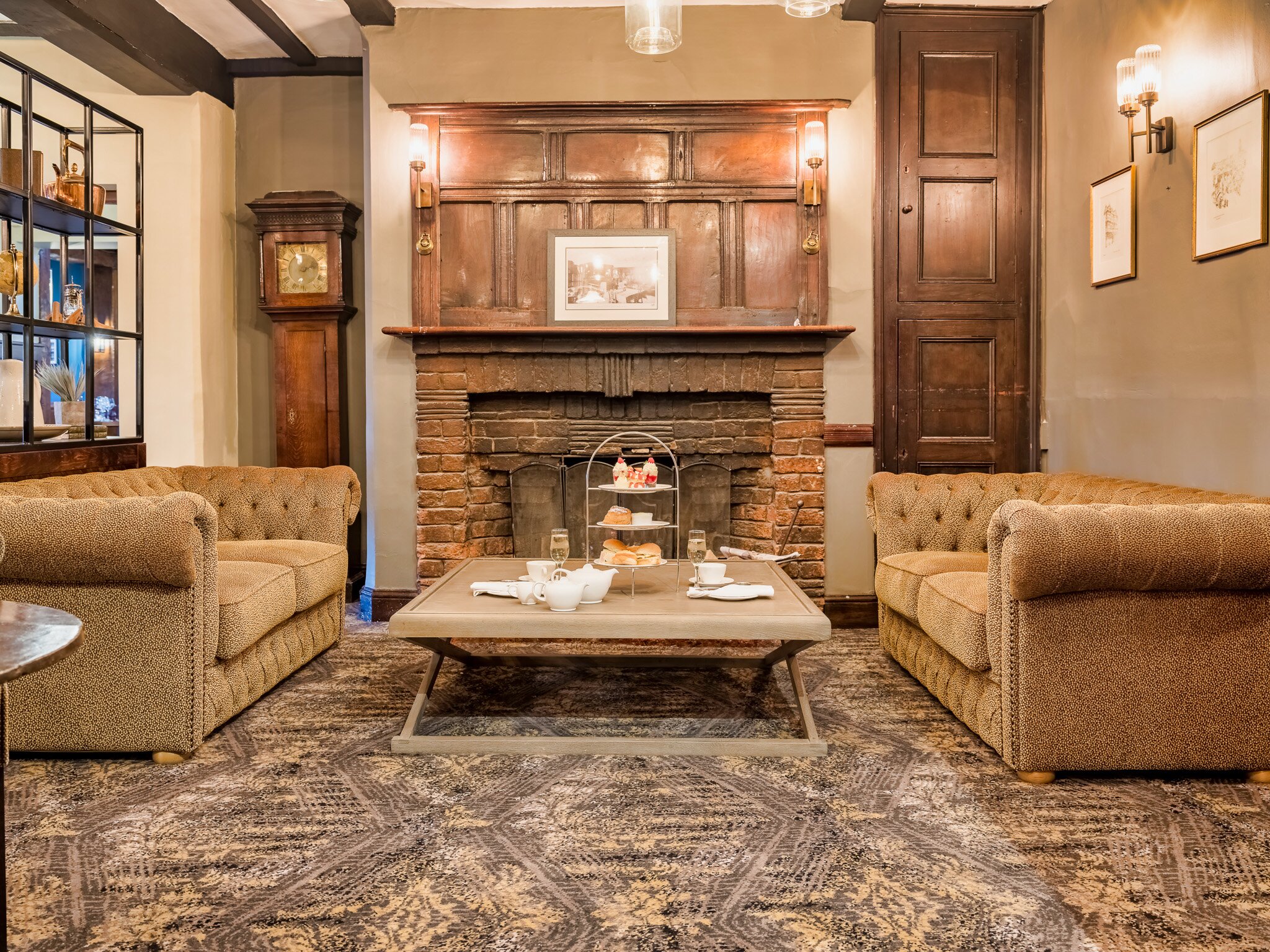
Crest Hotels initially reported that it would be spending around £500,000 on the refurbishment of the Feathers, after it bought the hotel for an undisclosed sum in December 2018. Yet it ended up spending five times that.
The bathrooms (and plumbing) alone cost £750,000, while another £150,000 was spent on asbestos removal. “It needed the investment to omit the risk. A light-touch refit turned into a full-on refurbishment. The owners wanted to do it right. And the more you do, the more you have to do. But we got a great product in the end, and we are very proud of what we’ve achieved,” says Hiley.
“In fact, to my knowledge, nobody has mentioned the Legionnaires’ disease outbreak since partly opening our doors last May,” he claims. “Everyone has full confidence that we have done the right thing, which is reassuring. We don’t get many questions about the past – we get more about the future, which is very encouraging.
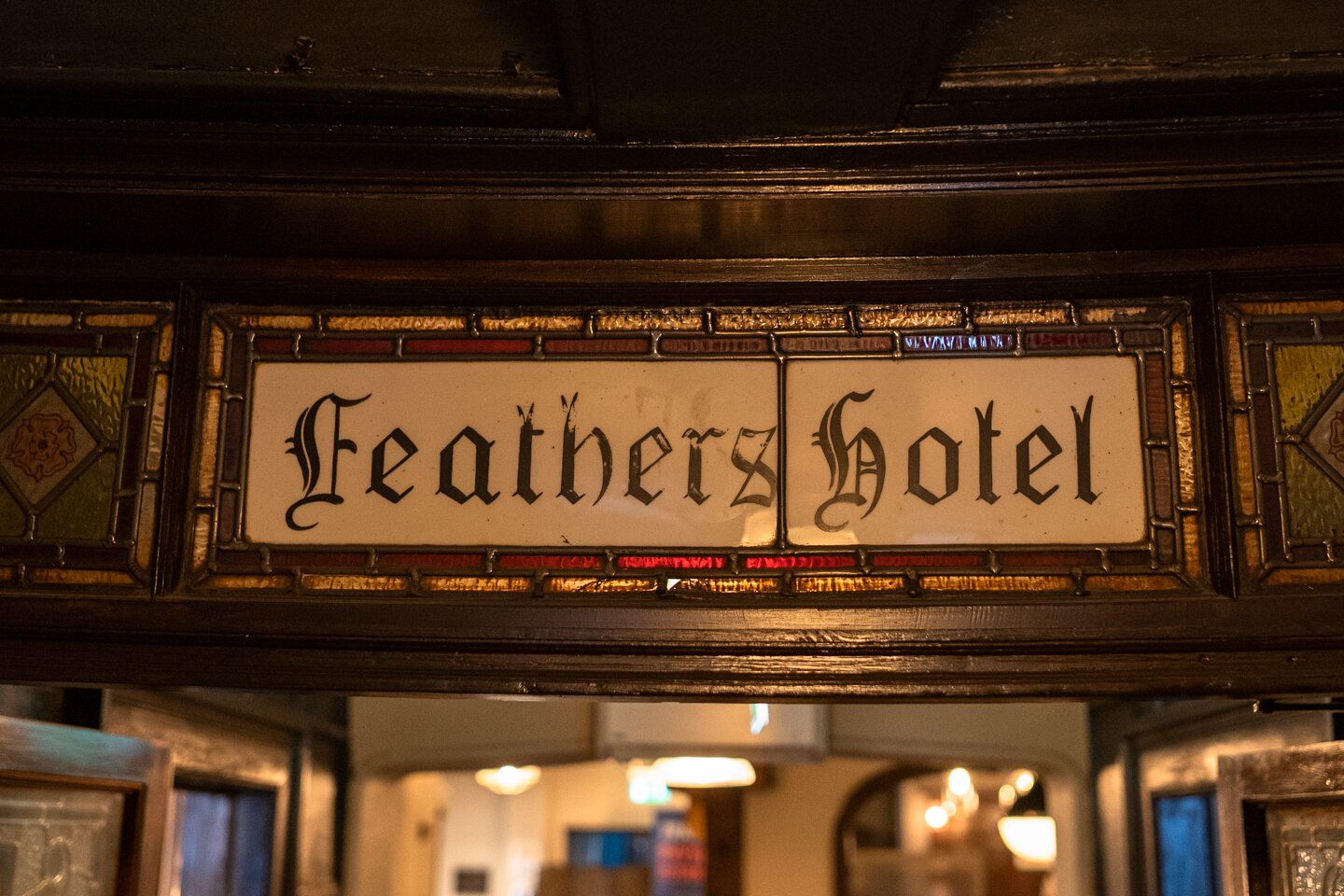
“But we knew we had to get the right message out to those who used us previously and to potential new business, so we are working with a great PR company, KRPR, to share all that positive news. It changed the sentiment. I don’t want to overshadow the hurt and hardship that happened at the property, but it’s a new chapter for the hotel and for Crest Hotels and we want to do the right thing and make sure people feel comfortable and safe here.”
It’s a new chapter for the hotel and for Crest Hotels and we want to do the right thing and make sure people feel comfortable and safe here
The designer for the refurbishment was Russell Sparke at Warwickshire-based RSD Interiors, with whom the company has worked on many projects. “He’s got an amazing eye. His brief was cheap, quick and looking amazing – we got the latter, but not the former,” quips Hiley, who also acted as project manager throughout. “Seriously though, it was about keeping that history and modernising sympathetically. I had no idea how hard that would be, but I’ve learned a lot,” he grins.
As the Feathers is a Grade I-listed building – one of five in Ludlow, along with the 1086-built castle, which looms fairytale-like over the town – the team worked closely with the Conservation Department at Shropshire Council and hired a conservation consultant, Tom Copp at RPS Group.
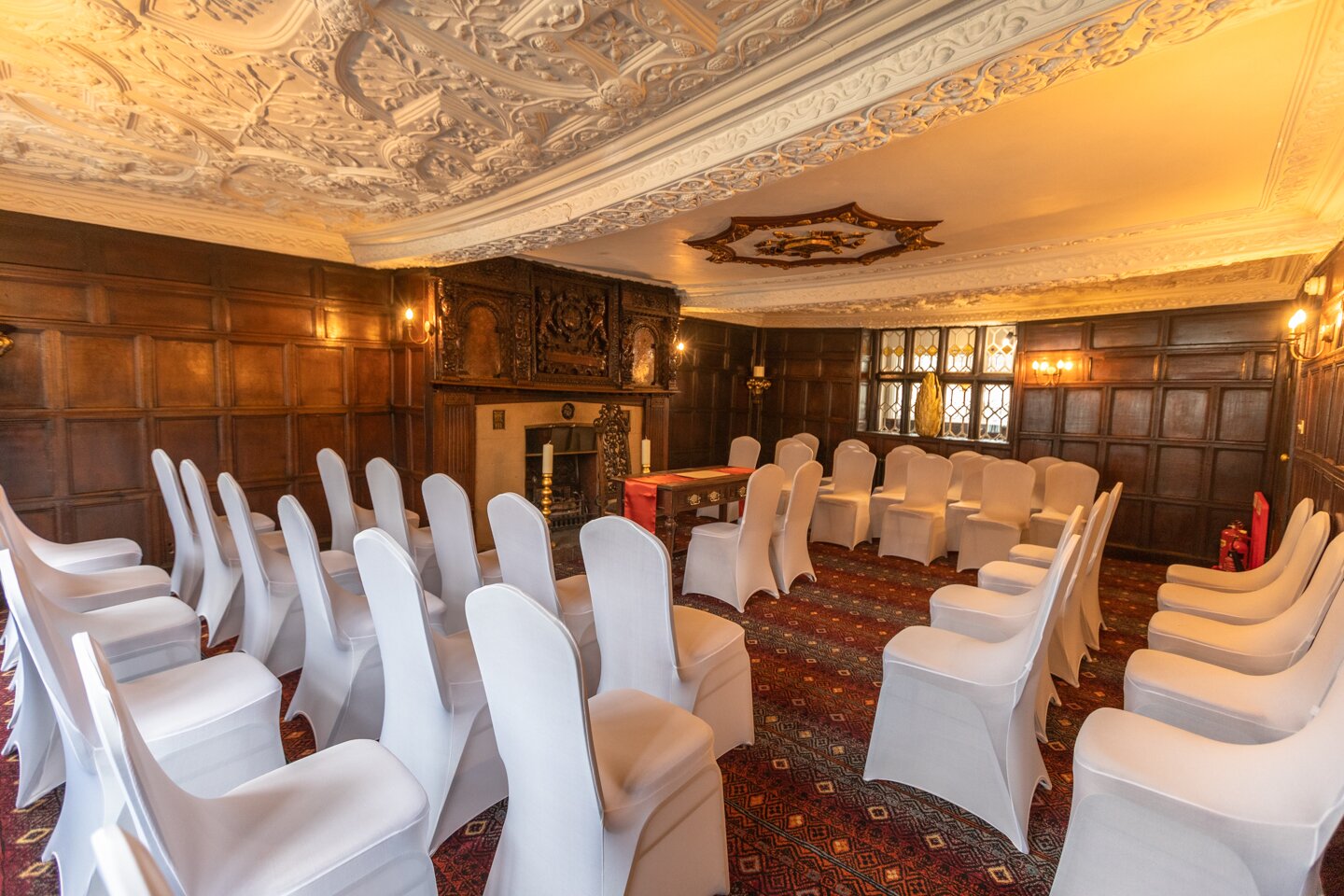
Conservation is at the heart of the small town, which is picturesquely framed by the Shropshire Hills, which link the Midlands with the mountains of Wales. Ludlow boasts an impressive tally of near 500 listed buildings and is a magnet for tourists the world over, most notably from the US and Japan – many of whom made a beeline for the Feathers.
So, who will come now? “Staycationers who want an elegant stay in gorgeous surroundings, in a historical setting, with great food and service,” Hiley says. “Indeed, when we opened our first bedrooms in December, that’s what we saw. Though we are getting enquiries from international guests for next year, so I think it will be a blended demographic once people start travelling again.”
The bedrooms are spread over two floors, with 17 classic rooms, 17 deluxe rooms and eight junior suites, with prices starting at £87.50 per night B&B, while suites start from £179 per night. Old mixes with the new, as the Chesterfield sofas, feature lighting and tiled bar with pewter top and LED surround sit happily with period features, including ornate ceilings, floor-to-ceiling woodwork, wooden carvings, bay windows with carved mullions and transoms with cast diamond glazing.
The oldest part of the building was completed in 1619 for Rees Jones, a lawyer from Pembrokeshire, who had come to Ludlow to pursue his profession at the Council of the Marches. And yes, there are plenty of ghosts, if you believe in that sort of thing, including, amusingly, a lady wearing nothing but clogs. “There are lots of eerie comings and goings,” jests Hiley.
Clean start
Sparkling renovations aside, the hotel company continues to do regular tests for Legionnaires’ disease, confirms Hiley. “We test for it in all of our properties as a matter of course – it’s part of the maintenance schedule, costing us in excess of £20,000 per year. We have a great Legionnaires’ disease consultant, who was involved in the new plumbing design. I know we’ve designed it out, but we want to make sure that there’s no chance of it creeping back, so we are testing the Feathers every month. We want to do the right thing.”
So, making provisions for Covid-19 prevention should be a breeze for the Feathers. “The team have worked really well at looking at the risks and omitting them,” says Hiley, who reveals the hotel’s 100-point sanitisation checklist for every departure takes the housekeeping team an hour to complete.
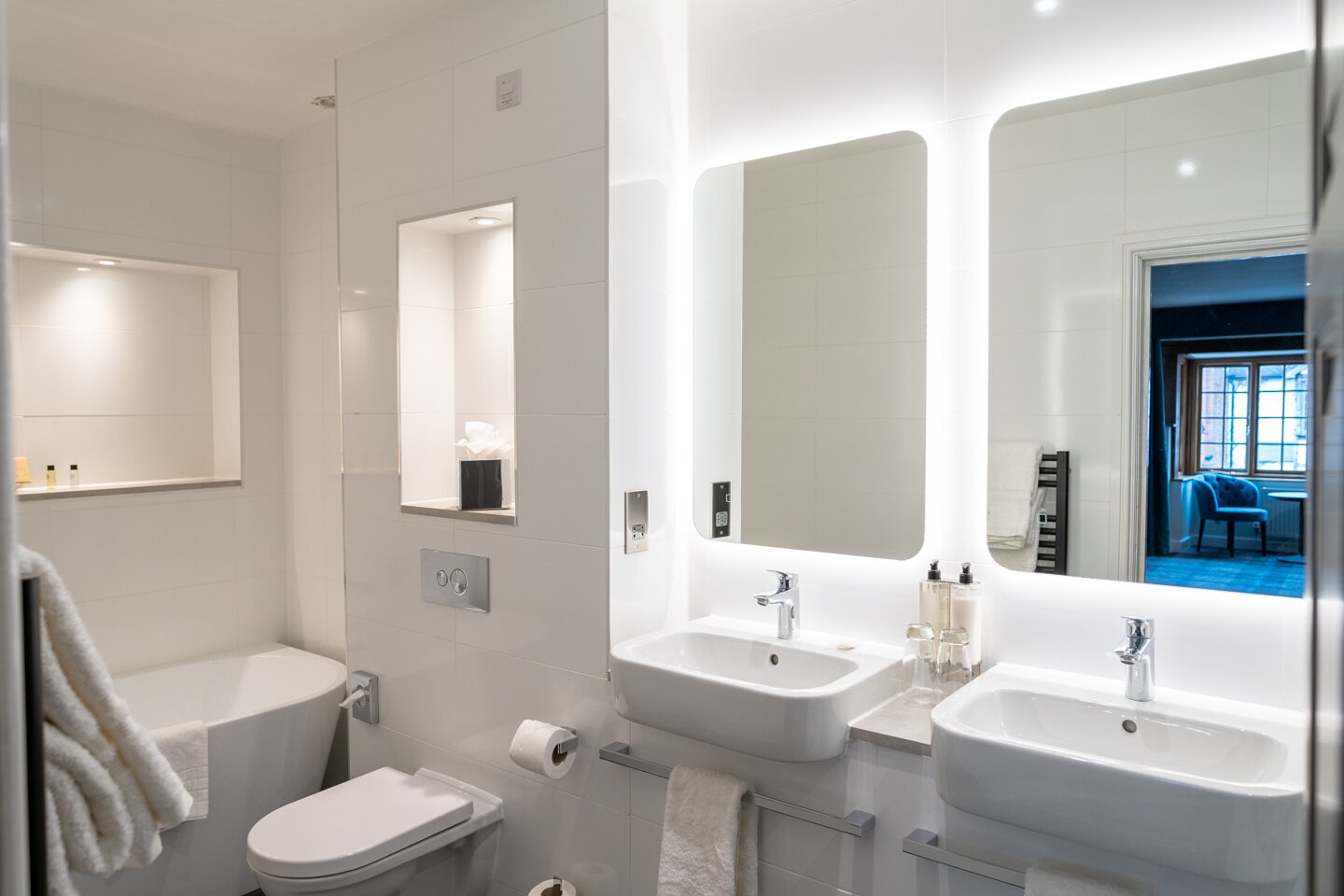
The sanitisation process has involved decluttering bedrooms by removing bed frames, rugs and scatter cushions for the duration of the pandemic, and introducing many other precautionary measures so that guests can feel confident, from putting bathrobes in sealed bags with security tags, to replacing pillows, which are aired for a period in their own mini-quarantine, before being returned to the room with fresh protectors and pillowcases.
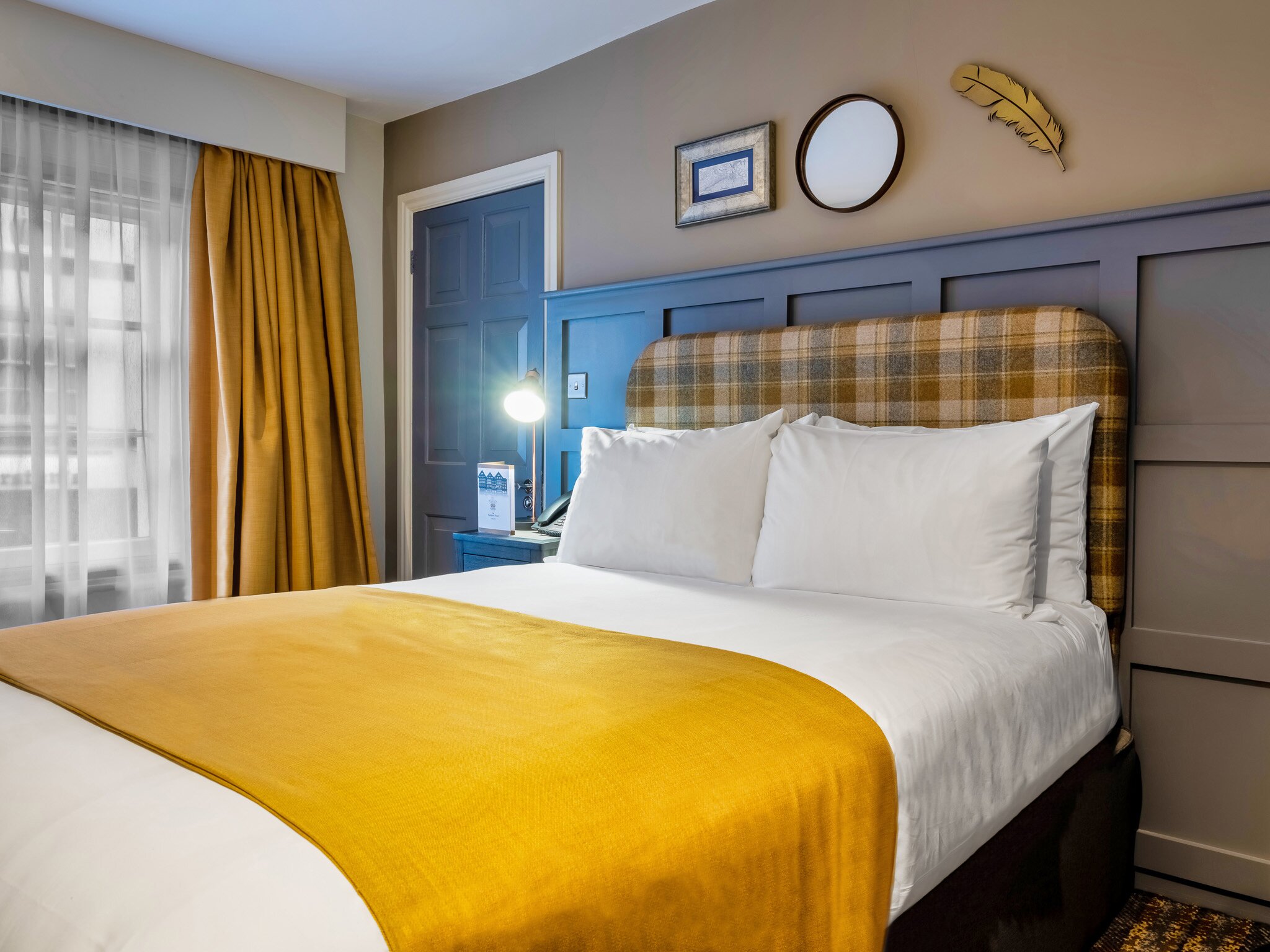
In the public areas, screens are being erected. “It’s very emotional walking around with the contractor, as so much energy and time went into creating social spaces and now we are planning where to put screens up. But it’s necessary,” says Hiley. The screens will blend into the surroundings with their feather lattice motif and bases painted to match the wall panelling, costing around £500 each. The team are also busy breaking the newly installed banquette seating into individual units to enable social distancing.
Capacity in the tearoom, restaurant and lounge will dramatically reduce. Covers in the tearoom (which is currently open for take- away) and lounge will drop from 80 to 40, while the 60-cover restaurant will drop to 30 covers. A redesigned sun trap of a courtyard will add another 24 socially distanced covers. Can they make it work financially? “We can cover our costs, but it’s better than being at net zero. We have to make it work,” shrugs Hiley.
On the menu
Menus will be streamlined, too, from 120 dishes to no more than 40 across all outlets, with a synergy between them all, presenting a challenge for group executive chef Wayne Nell.
South African-born Nell trained as a pastry chef and has served in Michelin-starred restaurants, and, along with head chef James Harrison, he has been offering keenly priced, smartly presented dishes that make the best of local produce since last October.
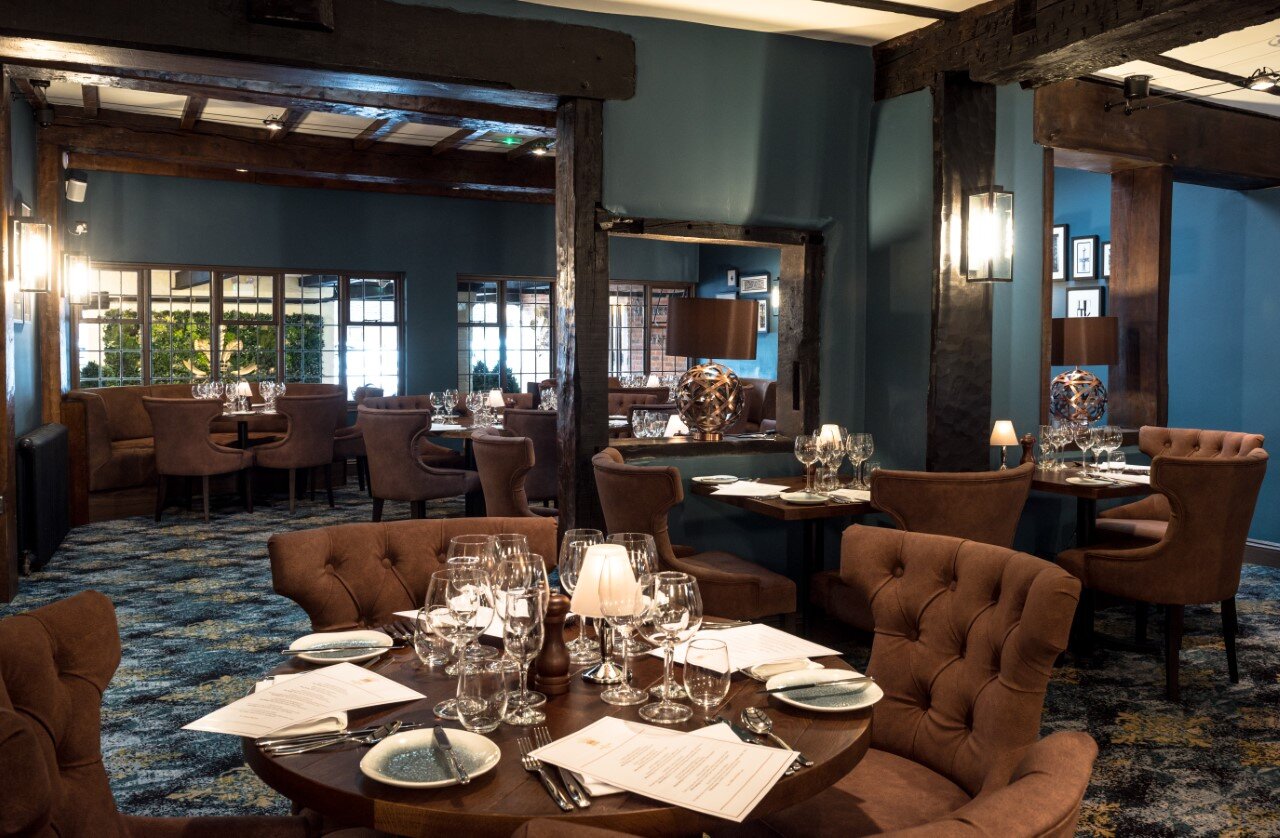
Dishes in the restaurant, called Plume@Feathers (the name chosen by a member of the public following a competition to involve locals and stir up interest), include starters such as smoked haddock, chive and potato cakes, capers and lemon aïoli (£6.95), mains such as roasted Barbary duck, Parma ham and red berry mousse, sweet potato fondant and buttered cavolo nero (£21.95), and desserts such as tart au citron and pear sorbet (£6.50). The restaurant did once sport three AA rosettes, so will it be gunning for these once again? “We would be proud to achieve two rosettes because of the effort the team has put in, but we aren’t necessarily chasing accolades. That was always the plan,” replies Hiley.
On Sunday, lunch is offered at £12.95 for one course and £17.95 for three, which, until lockdown, was going down a storm. So too was the all-savoury Gentleman’s Afternoon Tea at £19.95. “We want to create value for money, a place where people can socialise regularly. That’s always been the ethos,” says Hiley.
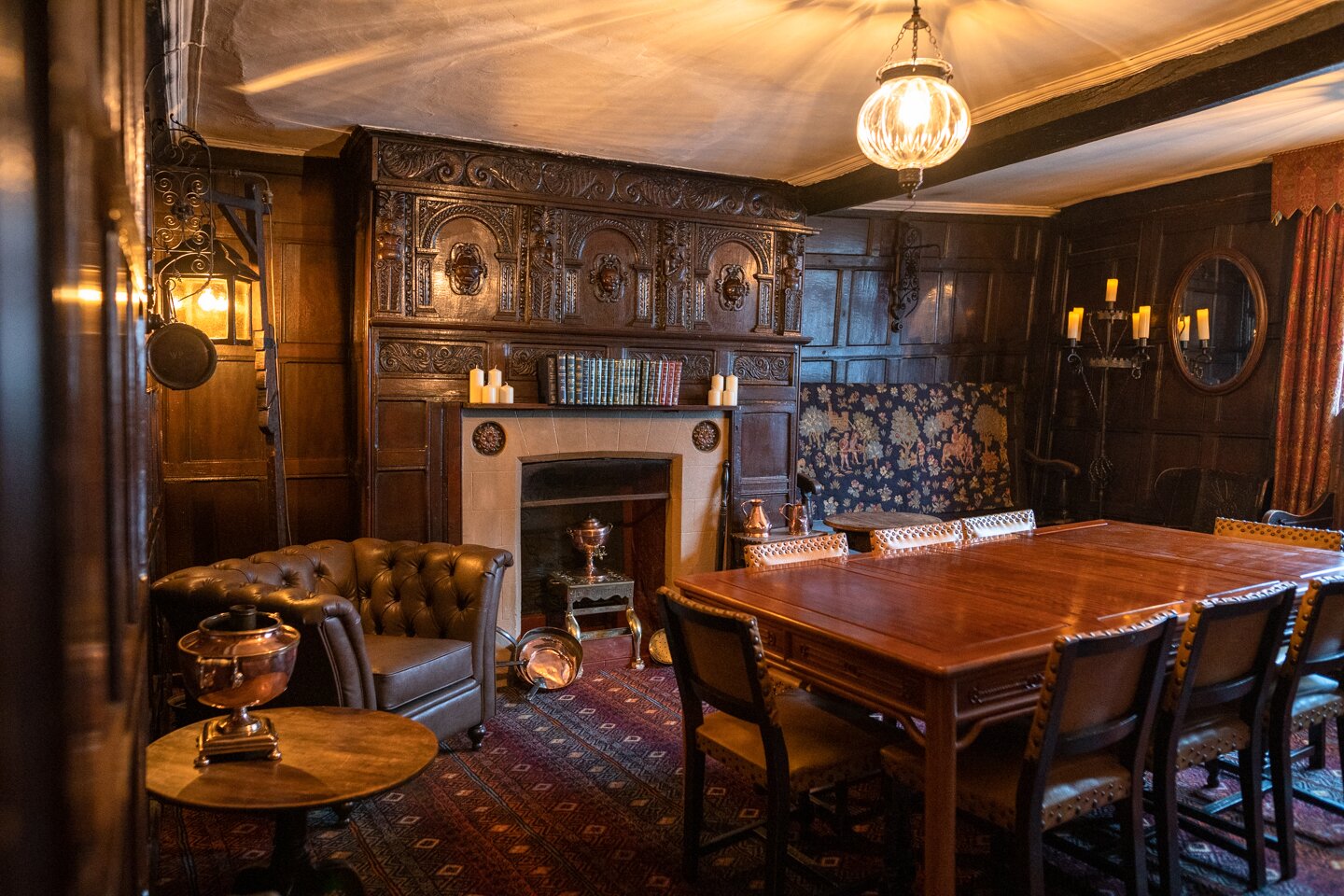
In the lounge, guests can enjoy open sandwiches from £5.95 and nibbles such as deep-fried whitebait and caper mayo from £5.50. The addition of locally sourced booze on the drinks menu is another nice touch, including cask ales from Ludlow Brewery and local gin from Ludlow-based Kirkwood Distillery; plus there are English wines on the list, including a Sussex bubbly from Bolney and a Kent red from Chapel Down.
The F&B offering at the Feathers should sit well in Ludlow, which has been undergoing a foodie renaissance of late. A couple of decades ago it hosted three Michelin-starred restaurants, most notably Shaun Hill at the Merchant House (now at the Walnut Tree, Abergavenny) and Claude Bosi at Hibsicus (now at Bibendum in London), plus the granddaddy of food and drink festivals, Ludlow Food Festival (still running).
Ludlow had slipped out of the spotlight, but now there is a new breed of Ludlow eaterie making its name, including Mortimers, Fishmore Hill and Old Downton Lodge. Add to that an array of food shops, including three butchers, a cheese shop, that brewery and gin distillery and a couple of delis, and the town of 11,000 is boasting a buoyant food scene.
There’s a lot of affection for the Feathers, from both locals and visitors. When it closed, nearby businesses noticed a significant drop in trade. “It’s the heart of the town,” says Hiley. “Everybody here has an association with the Feathers, one way or another. It reinforces that we are just custodians, we are here to look after it, and to love it for the chapter that we have it, and we are proud to be a part of its 400-year history.”
We are here to look after it, and to love it for the chapter that we have it, and we are proud to be a part of its 400-year history
Crest Hotel Group
Owned by the south east-based Singh family, Crest Hotels is a group of four properties that launched with the purchase of the 86-bedroom Holiday Inn Express in Knowsley, Liverpool, in 2002. This was followed by the acquisition of the 50-bedroom Almondsbury Interchange hotel on the outskirts of Bristol in 2006.
In 2016, the hotel group purchased the 73-bedroom Arnos Manor hotel, also in Bristol, while in December 2018 it acquired the 42-bedroom Feathers hotel in Ludlow.
The 241-bedroom Holiday Inn Birmingham Airport, which was purchased in 2005, sold for an undisclosed sum off the guide price of £33m in 2019.



